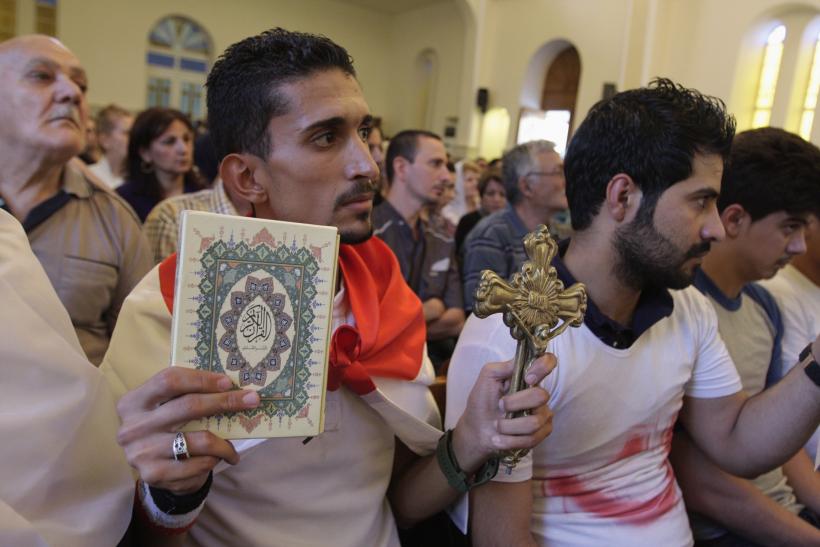Jihadist tensions and threats along the Iraq-Syria border watched carefully, but the goal is to rebuild. Mgr Moussa: life “is taking its course again”, the pope’s visit last March still a path to fraternity. Bishop of Kurdistan: the main problem is “the political vacuum”.
Mosul (AsiaNews) – From the killing of Abu Ibrahim al-Hashimi al-Qurayshi, al-Baghdadi’s successor at the head of the Islamic State (IS, formerly Isis), to the Turkish air raids against Kurdish PKK militiamen, passing through the assault on the Ghwayran prison , tensions are mounting on the border between Iraq and Syria. An escalation that sees the protagonists of the militiamen of the caliphate, who once controlled half of the territories between the two countries, especially the desert areas, and that today maintain an active presence with sleeper cells, but ready to strike. Violence that worries the Syrian side above all, while in Iraq it is the political crisis that fuels instability: on the terrorism and security front, however, the situation is mostly under control.
In January 2019, the Dominican Monsignor Michaeel Najeeb Moussa was appointed Chaldean Archbishop of Mosul, a northern metropolis that was once a jihadist stronghold, says that in the city “there is no climate of fear” because of what is happening “especially across the border, in Syria”.
Even in the Nineveh plain, he adds, “the situation is relatively calm and stable”. In fact,” he told AsiaNews, “Mosul is one of the most peaceful areas in Iraq today, I myself have been living there for six months. At the grassroots level, he continues, “life is resuming its normal course, with its own rhythms and a basic harmony” that is being built on the principles of “peace, fraternity and mutual respect”.
A fundamental push in the direction of dialogue and reconstruction was given “by Pope Francis last March”, during his historic apostolic trip to Iraq. “There is great attention – concludes the Chaldean archbishop – towards this martyred city, to help it get rid of the legacies of the past and contribute to the reconstruction of the infrastructure and march together towards progress”.
In some areas of northern Iraq, travelling at night can be dangerous, as told by a citizen of Jalawla, in the north-east, for fear of Isis attacks. The common opinion is that Daesh [Arabic acronym for Isis] is not as powerful as it was in 2014, its resources are limited, but it can take advantage of a situation of confusion, a power vacuum and control of some territories, especially across the border. As some inhabitants of Sinjar point out, Isis first arrived from Syria and it is precisely across the border that the reality appears less stable and the cells of the militia are freer to move, act and strike.
At the same time, there is still much work to be done to counter a sectarian mentality, in which episodes of abuse and marginalisation emerge. According to the website ankawa.com, Mosul police have opened an investigation into the death of a girl, probably of natural causes, who had previously been expelled by the headmistress of a secondary school for refusing to wear the Islamic veil.
Msgr Paul Thabit Mekko, coadjutor bishop of Alqosh (Iraqi Kurdistan) and in the past responsible for years for the Christian community in Karamles, in the plain of Nineveh, confirms that rumours have emerged on the matter, but the contours remain unclear and “we have no certainty”.
With regard to Daesh attacks, Msgr Mekko speaks of “episodes that can happen”, as was the case last month with “the assault on an army unit. The escape of the militiamen from the Syrian prison has also raised some fears in Iraq, then there are sporadic cases of violence, as happened in Kirkuk, but life is all in all normal”.
The ‘main’ problem, he warns, is ‘the political vacuum, the inability to choose a president and then the Shiite groups, divided internally, do not want to cooperate while some formerly powerful representatives are now back in the limelight to ask for a place in the government’. In this context, he concludes, “we Christians entrust ourselves to prayer and fasting, as we are doing in these days for the supplication of Nineveh, a very important event for all Iraqi Christians”.
www.asianews.it






